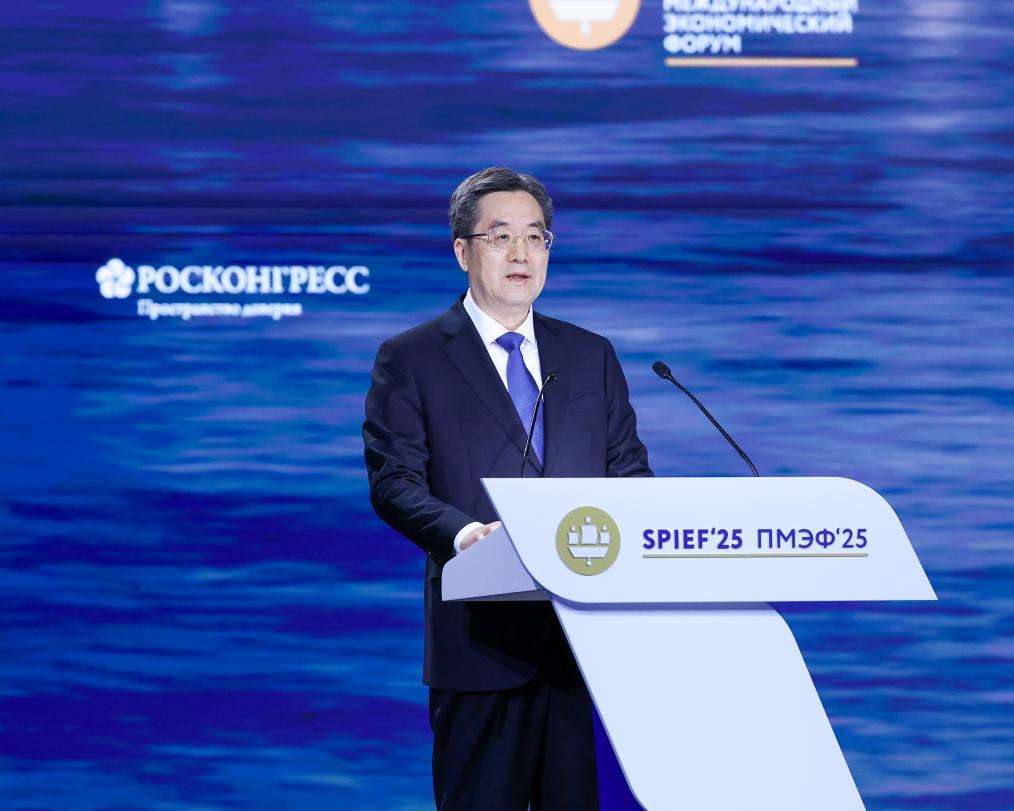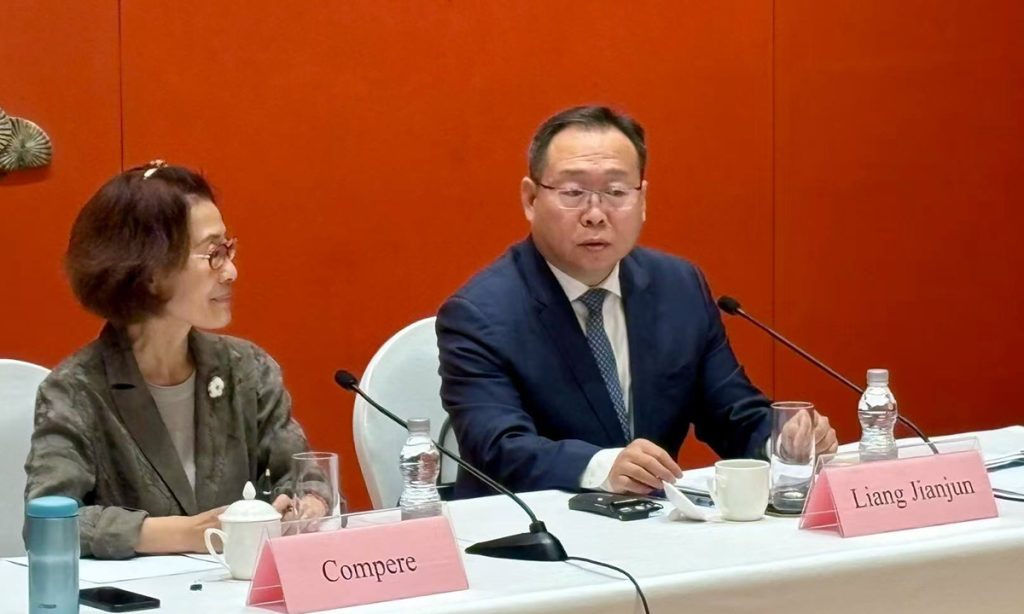Chinese vice premier calls for championing humanity's common values, promoting multipolar world

Chinese Vice Premier Ding Xuexiang on Friday called for championing humanity's common values, and promoting an equal and orderly multipolar world as well as universally beneficial and inclusive economic globalization.
Ding, also a member of the Standing Committee of the Political Bureau of the Communist Party of China Central Committee, made the remarks when delivering a speech titled "Championing Humanity's Common Values and Promoting a Multipolar World" at the plenary session of the 28th St. Petersburg International Economic Forum.
Ding said that a decade ago, Chinese President Xi Jinping noted in his speech at the General Debate of the 70th Session of the UN General Assembly that peace, development, equity, justice, democracy and freedom are the common values of all mankind and the lofty goals of the United Nations.
The important proposition transcends differences among different countries, ethnic groups, social systems and ideologies, drawing a value-based concentric circle for building a community with a shared future for mankind, and has received extensive support and positive responses from the international community, he added.
At present, global changes unseen in a century are accelerating, multiple risks are intertwined, and humanity is confronted with many common challenges, said Ding, calling for reviewing President Xi's important speech to steer the world toward a bright future of peace, security, prosperity and progress.
The Chinese vice premier put forward a four-point proposal.
First, uphold the concept of global governance featuring extensive consultation, joint contribution, and shared benefits. Promote equal rights, opportunities, and rules for all nations, and safeguard UN authority and international fairness.
Second, jointly build an open and pluralistic world economy. Take concrete steps to safeguard the multilateral trading system and international economic order, expand and fairly share the "pie" of economic globalization, and create more opportunities for Global South countries.
Third, advocate exchanges and mutual learning among civilizations. Respect the diversity of human civilizations, support all nations in exploring their own paths to realizing values, and oppose any "new Cold War" or ideological confrontation.
Fourth, safeguard global peace and development by building trust, settling conflicts, and enhancing security through dialogue, passing the torch of peace to future generations for lasting stability and common prosperity.
Ding stated that China and Russia are true friends who share weal and woe, and good partners for mutual success. Last month, President Xi paid a state visit to Russia and attended the celebrations marking the 80th anniversary of the victory in the Soviet Union's Great Patriotic War, he said, adding that the two heads of state agreed to further consolidate political mutual trust, strengthen strategic coordination, and jointly deliver a resounding stance for upholding the outcomes of World War II and international fairness and justice.
China is willing to work with Russia to elevate the China-Russia relationship to greater heights, broaden its dimensions, and strengthen its resilience, expand high-quality mutually beneficial cooperation, so as to better benefit the two peoples, said Ding, urging the two countries to strengthen coordination and collaboration on multilateral platforms such as the United Nations, and make greater contributions to building a more just, equitable, and prosperous multipolar world.
Ding said that despite the increasing impact of external shocks, China's economy has continued to show a positive trend, demonstrating robust vitality and resilience to the world.
China will expeditiously implement more proactive and effective macro policies, focus on stabilizing employment, enterprises, markets and expectations, and use the certainty of high-quality development to counter the uncertainties of the rapidly changing external environment, he said.
No matter how the external environment changes, China's door to opening up will only swing wider open, said Ding, adding that enterprises from all countries are sincerely welcome to invest and start businesses in China, actively participate in the process of Chinese modernization, and share China's development opportunities.
In the interactive session after the address, Ding responded to questions from the plenary session moderator on major-country relations and China-Russia cooperation in education and technology.
On the sidelines of the forum, Ding met respectively with Russian First Deputy Prime Minister Denis Manturov, Russian Deputy Prime Minister Alexander Novak, Russian oil company Rosneft's chief executive Igor Sechin, and Gazprom CEO Alexey Miller.
The two sides agreed to fully leverage the roles of the China-Russia Investment Cooperation Committee, the China-Russia Energy Cooperation Committee and the China-Russia Energy Business Forum, promote the high-quality development of investment and energy cooperation, and provide more impetus for the development of bilateral relations.
Ding also had brief and friendly conversations respectively with Indonesian President Prabowo Subianto, National Security Advisor of Bahrain Shaikh Nasser bin Hamad Al Khalifa, and South African Deputy President Paul Mashatile.

